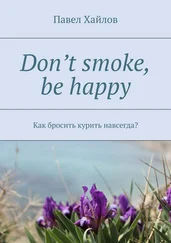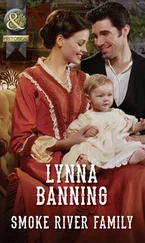Then there are cellars filled with barrels and bottles, others crammed neck-high with mighty rounds of cheese; a suite of rooms in an upper wing, in which all floors are tiled in chessboard patterns and all furniture has been removed; a big brass telescope that stands in an abandoned corner study and pokes its lens through the removable pane of a narrow window, taking aim at the winter sky.
Through some unspoken agreement, they do not venture to the attic. It is understood that the attic is Charlie’s space, Charlie’s and Livia’s, and, of course, their patient’s. Thomas does not tell Charlie that he has no need to go exploring there. He has already been. He went up to the attic the very day Charlie described his discovery to him, driven by a private need. It was the early hours of the evening. Thomas hid in the shadow of a doorway while two servants, a man and a woman, were taking their turn looking after their employer, the sound of their voices travelling into the corridor if not their words. When they left at last, Thomas walked up to the door and opened it silently; stood on the threshold, looking in. The servants had left a gas lamp behind, turned very low and hung from a hook far from the bed. It had taken several minutes before Thomas’s eyes learned to distinguish man from bedding. In the meantime, he listened to the baron’s breathing, even for the most part, a little too laboured to suggest sleep. The breathing reassured Thomas. He had come there to look into his own future: the flowering of the seed that Renfrew had detected in him and not been able to dislodge. Thomas had expected the raving lunacy of London, curable only by the rope. This was another outcome of his sickness, a calmer end.
If it comes to this , it crossed his mind, I can ask Charlie.
To help me end it.
Then the baron’s face began to peel itself from out of the shadows. First came the eyes: large white orbs, their irises dark like punctures. Moving, staring. Aware of being watched. Agitation began to shake the sick man, drenching his nightshirt in fresh black. Thomas ran away at once. He did not want to frighten the man. Nor have his last illusion shattered about the day of reckoning that will be his.
ф
On the third morning of explorations, Charlie and Thomas find the billiard room and the gymnasium. The first is a narrow, wood-panelled room, with the playing table at one end and a drinks cabinet at the other. The atmosphere is so snugly masculine — from the glass case well-stocked with cigar boxes, to the row of decanters filled with sherry and port — that it feels as though a group of gentlemen in frock coats must be standing just around the corner. Paying tribute to the ladies. Looking for excuses to return to their games.
Across the corridor lies quite a different room. Spacious and well-served by windows, it is uncarpeted and virtually unfurnished apart from four chest-high posts that form a square made more explicit by the double line of rope stretched between them. Two stools stand in the ring, in opposite corners. A long bench lines the windows and a single wardrobe leans opposite, slumped to one side, where a leg has given out with rot. On its left hangs a mirror, so corrupted by age that the dirt seems to have grown into the very glass. On its right, a daguerreotype whose glass is black with dust.
They open the wardrobe first. Inside is dirt, a pile of mildewed towels; a candy floss cone of spider’s webbing; a brass bell to ring in the rounds; and a dozen or so boxing gloves, with worn, knotty laces, split thumbs, and fraying seams. Without discussing it in the least, they set to trying on gloves, exchanging pairs, shaking out dirt and insect remains, discarding those whose torn leather might cut the skin on impact. They have no gym tights but roll up their trousers; no gym shoes, so decide on bare feet; no jerseys, so strip off their shirts and coats; stand freezing, the gloves hanging heavy from their wrists, and eye the ring.
Before they climb in, Charlie reaches up and wipes the tip of his glove through the daguerreotype’s murk. A face emerges, then a second. The first is handsome and composed, a man past the halfway point in life, but proud, well-kept, his longish hair swept back from his brow and tucked behind his ears. Livia’s face is imprinted in his features. It is by this, rather than his excursion to the attic, that Thomas recognises the baron.
The second face they do not expect to find in this place. Hence it eludes them, yet also calls to them, sufficiently so that Charlie reaches up and, still in boxing gloves, fishes the picture off its hook. They take it to the bench, lay it out flat, pore over it like over a book. The body is slender, there is no beard, and the features have the softness of those early years of manhood. It is a stage of life that still lies ahead of them but is so close now, its contours have already been sighted.
In black-and-white the man’s hair does not shine in its familiar colour of young corn.
“Renfrew,” Thomas says at last, when he is sure.
As they wipe away at the blighted glass, they find pale skin. Like themselves, the pair they see are stripped to their waists; wear gym tights and gloves, the latter raised in front of their chests. The backdrop is this very gym. The men’s shadows are thrown behind them, deep into the ring.
“Where did Renfrew go for his studies?” Charlie wants to know.
“King’s, at Cambridge. He says it’s the finest college there is.”
“Livia told me that Baron Naylor used to be a don. At Cambridge. He must have been Renfrew’s tutor.”
“Trying to knock some sense into him, by the looks of it. Shame it didn’t work.”
The joke is feeble but it helps them reconnect to the mood that made them put on the gloves. Besides, they are cold. Thomas replaces the picture; climbs into the ring. Charlie is about to follow when he stops himself, races back to the wardrobe, retrieves the bell. He rings it. The clapper is so caked in dirt that the sound resembles a clucking tongue.
“First round,” he announces.
They square off and begin to spar.
ф
For the longest time neither of them lands a punch. Instead they are shadow-boxing, keeping their distance, dancing sideways, only to suddenly lunge forward and deliver devastating hooks into thin air. When they are good and winded, Charlie races over to the bell, takes a clumsy hold of it between glove-swollen palms, then augments its sound by singing out three rings.
It takes until halfway through the second of these rounds before Thomas divines the reason for their reluctance to connect their punches. It isn’t just that they are friends, averse to causing each other pain, even in sport. Charlie, he realises, is afraid. Afraid he will wake Thomas’s Smoke; afraid that one well-placed punch will break something in him, and wake it up. The monster inside. And it isn’t just Charlie. He himself is holding back. The danger, he senses, lies not in being hit but in hitting: the joy of crushing padded leather into flesh and bone. Lady Naylor’s words about Livia hang in his head all of a sudden.
She lives like a china doll. Listening into herself.
Waiting for something to break.
The thought alone coats his mouth with Smoke.
And so he snarls, steps into Charlie, and delivers a clean hard hook into his shoulder, then follows it at once with a quick cross. His friend grunts, retreats, jiggles the arm just hit as though testing it for injury — and grins. His gloves rise, he steps forward, toe to toe, and loosens three quick jabs into Thomas’s chest, before stepping in to sling an uppercut into his stomach. A brawl follows in which shoulders are beaten meat-loaf red, and chests given a good pounding; the odd rib is rung and one lowish sucker punch leaves Thomas gasping for sweet air. They dispense with the bell, hammer away at each other until they are both breathless, sweaty, slumped over on the bench and radiant with joy. If there has been any Smoke, it has been so light, requited, and playful as to have been part of the game.
Читать дальше












